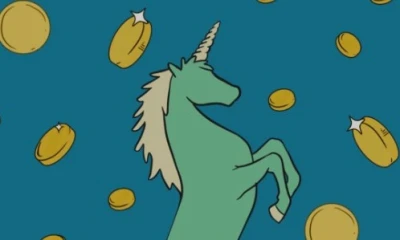A recent study, the Global Unicorn Index 2024, has revealed that Indian entrepreneurs have spearheaded the creation of more unicorns outside their home country than any other nation. These entrepreneurs have co-founded an impressive 109 unicorns abroad, surpassing the count of 67 unicorns established within Bharat. Unicorns, in this context, represent startups valued at over a billion dollars and yet to be publicly listed.
The report conducted by the Hurun Research Institute positions Bharat at third spot globally. The nation boasts of 67 unicorns. Prominent among these are Swiggy, a leading on-demand delivery startup, and Dream11, a fantasy sports platform, both valued at USD 8 billion each, along with Razorpay valued at USD 7.5 billion.
“One factor is that Indian founders produced more offshore unicorns than any other country, co-founding 109 unicorns outside of India compared with just 67 in Bharat,” stated the report.
Out of the unicorns established beyond Bharat’s borders, a notable majority were situated in the United States (95), primarily centred on the Bay Area. The Global Unicorn Index also identified four unicorns in the United Kingdom, three in Singapore, and two in Germany.
Among cities outside the United States and China, London emerged as the most active hub for unicorn activity, followed closely by Bengaluru, Paris, and Berlin.
The report underlined the remarkable role of strategic investors in the success of the world’s unicorns. Tiger Global, Softbank, and HongShan were cited as some of the most influential unicorn investors, underscoring the mutually beneficial relationship between startups and strategic investment.
On investments in startups, it mentioned the year 2024 has seen a slowdown in new unicorn investments, particularly compared with the heyday of 2021 as investor exits prove harder to come by.
The record-breaking stock markets in the US, Bharat and the UK have not delivered significant unicorn IPOs.
“I hope this list of the world’s unicorns can inspire individuals to drive value creation in new sectors and for countries and cities to recognise the importance of unicorns to their future economy,” it said.
“Yes, some will fail, and when they do it is normally to massive media attention, such as Bharat education platform BYJU, but on the whole unicorns are seen as inherently vital to the new economy,” mentioned the report.
The world’s unicorns come from 53 countries, up from 48 last year, spread around 291 cities, up from 271. The US led with 703 unicorns, followed by China with 340.
Hurun found 1,453 unicorns across the world, a new world record and up 7 per cent or 92 unicorns.

















